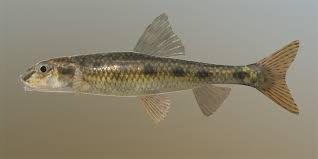Environmental effects are complex; that is the problemTorstai 15.10.2020 klo 14.19 - Mikko Nikinmaa In any natural environment all animals, here I am focusing on fish, experience changes in temperature, parasite infections etc. On top of that become all the anthropogenic contaminants, metals, pesticides, flame retardants, pharmaceuticals, personal care products and so on. The complex cocktail can affect organisms directly and indirectly, and a change in any variable can affect the growth, health and survival of them. Because it is very difficult to study, how the environmental heterogeneity and its changes affect animals, most studies use a defined set of abiotic conditions and one pollutant. While this gives much valuable information, it should be remembered that for example a change in temperature, oxygen level, age of animal, salinity of water and the presence of other contaminants can influence the observed result. Occasionally, one gets the surprising finding that what we think as a pollutant and thus expect a negative effect actually increases the tolerance to an environmental change. For example, when we studied the effects of oil pollution on the thermal tolerance of juvenile fish (rainbow trout and European sea bass), we observed that the oil-exposed fish, if anything, tolerated high temperature better than control specimens (Anttila et al 2017, Environ Sci Pollut Res DOI 10.1007/s11356-017-9609-x). Recently, Petitjean et al (Science of The Total Environment Volume 742, 10 November 2020, 140657) have studied gudgeons in six French rivers, and observed clear interactions between the metal loads and temperatures the fish experience: an increase of metal load at high temperature reduces growth. Naturally, this survey conducted in natural environment cannot differentiate between direct and indirect effects of metals. It remains as a possibility that, e.g., the prey organisms of the fish are affected initially, whereby their availability decreases, decreasing the growth of fish. Here I have focused on temperature, because we are currently undergoing a giant-scale natural event, climate change. It would be much simpler to evaluate, how temperature increase as such affects living functions, than take into account how temperature change affects responses to the mixture of environmental contaminants. The temperature effects can be completely opposite for different contaminants. |
|
Kommentoi kirjoitusta. Avainsanat: climate change, environmental pollution, toxicant, cocktail effects, fish, temperature |

